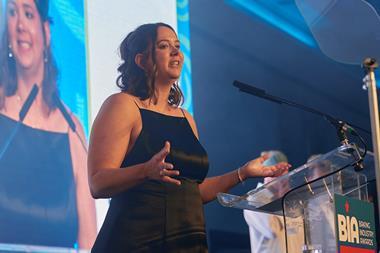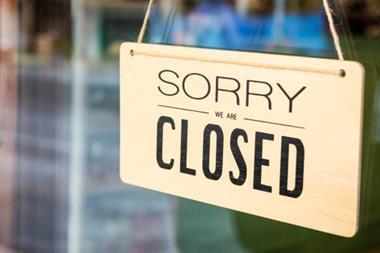Gerhard Jenne finds that, when it comes to TV programmes, The Fixer probably has more to offer to small bakery businesses than The Great British Bake Off.
Last week I already mentioned BBC Two’s latest series of The Fixer, featuring the outspoken Alex Polizzi, wife of London baker Marcus Miller of Miller’s Bespoke Bakery, as she goes round Britain to address some of the issues that kill so many small companies.
If I had to choose between two shows on TV at present, I would say I actually found the two episodes of The Fixer screened to date far more captivating than anything on The Great British Bake Off. The issues raised are far more relevant than ‘Alaskagate’ or whether Paul Hollywood cares if the cherries sink to the bottom of Merry Berry’s recipe. Alex Polizzi addresses some real issues that make a difference and might even stop companies from going under!
All small businesses together generate £1.6 billion, thus making a sizeable contribution to the economy, but a third of new businesses fail in the first three years of their existence. I suspect many of them are in the bakery and catering sector.
I recall reading some chilling statistics when I set up myself 21 years ago. They then said 90% of start-ups in catering fail in the first year, and another 50% in following three. I hope the figures have got better. The digital revolution has made it easier to get good business advice in the first place, and keeping track of the finances on spreadsheets is a lot easier than the hand entries into some giant cash book I recall having to do in the early days.
In the first programme, Alex Polizzi went to help Hunter Brewery, a micro-brewery in Devon. The family-owned business was struggling to keep going after the owner spent all his savings, as well as half the value of his family home, on equipment for the brewery, without being able to increase sales. My own overspend on the fit-out of one of Konditor & Cook’s sites made me think, “Been there, done that”. We had other sites that were making a good profit and kept us afloat, but this brewer had no other markets to rely on.
Because of their financial difficulties, the brewer’s wife had also given up her career and got involved in the business. I can tell, from first-hand experience, that such close collaboration can be fantastic, but it can also be a challenge. It takes some effort to keep effective communication going when there’s a war raging in the office over cut-backs, and emotions can run high when it comes to axing lines or certain business activities in a way they don’t when the relationship is purely professional. But all businesses need a strategy, and that’s what Alex is trying to get across.
In the case of Hunter’s Brewery, there were further issues around its branding – basically an array of confusing labels, neither distinct enough to set them apart nor suitable for the brewer’s dream of selling the beers abroad. A brought-in brand expert gave savvy advice: Cultural differences around elements such as colours, names, clear messages and language used are very important factors when it comes to labelling, whether it is a domestic or foreign market.
The owners of Hunter Brewery had learned a great deal and one got the sense the business had turned a corner. Alex’s next assignment helping a sausage-maker in Yorkshire was equally relevant, but I’ll let you be the judge of that: http://www.bbc.co.uk/programmes/b04grqw4
konditorandcook.com





























No comments yet